DHT Blocker Foods: 6 Proven Picks For Strong, Healthy Hair
Healthy and effective foods that keep your hair from shedding and improve your mane.
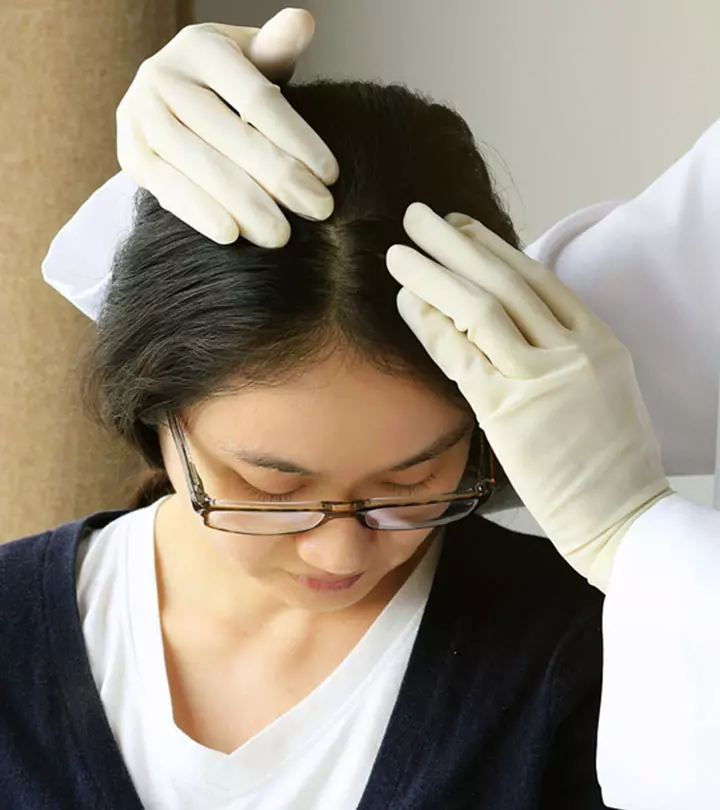
Image: Shutterstock
Most hormones produced in the body support its normal functioning. However, one specific hormone, called dihydrotestosterone (DHT), is known to cause hair loss. But thankfully, you can eat certain foods rich in vitamins and minerals that block DHT and potentially prevent severe hair loss.
Keep reading to know the foods, ayurvedic treatments, and physical exercises that can help prevent excess production of DHT in the body. We also tell you how this hormone prevents hair growth and causes hair fall.
In This Article
What Is The DHT Hormone?
The DHT hormone is a type of androgen derived from testosterone. It greatly contributes to the maturity of the male body during puberty and is the reason behind the many physical attributes in male adults. While DHT hormones can also be found in females, their actual role is still unknown.
When created in excess, this hormone can cause several medical and aesthetic concerns in an individual. To avoid this, people try to reduce their DHT levels with the help of blockers and achieve hormonal balance. These blockers can be found in a variety of foods and plants.
Unsurprisingly, one of the main concerns of excess DHT hormone is hair loss. Read the next segment to understand further.
Key Takeaways
- The DHT hormone, a kind of androgen responsible for physical attributes in male adults, when produced in excess, can cause hair loss.
- Certain foods like pumpkin seeds, coconut oil, turmeric, green tea, onions, and soy milk block DHT and reduce hair fall.
- Ayurveda-based oil massage, medicated oil inhalation, or hair care products may help reduce hair fall when combined with a diet rich in DHT blocker foods.
Does The DHT Hormone Cause Hair Loss?
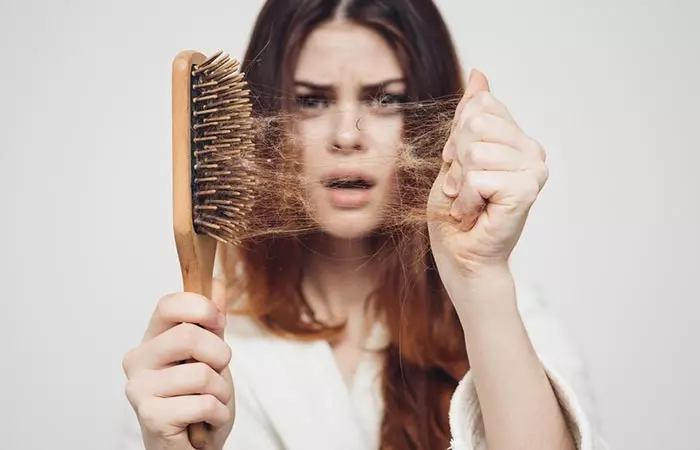
An overproduction of the DHT hormone can lead to hair fall.

Every hair strand on your body grows out of tiny follicles or roots present right below the skin’s surface. This process follows a strict growth cycle that ends with the hair falling off once it reaches the resting phase.
High DHT levels in the body could shorten the strand’s growth cycle as well as shrink the follicle size. This can cause hair to fall out faster, eventually leading to DHT hair loss. Additionally, the DHT hormone can also increase the time it takes for the follicle to produce more hair – and this aggravates the problem.
As with most medical issues, certain individuals are more susceptible to experiencing the negative side effects of this hormone. There could be any of the following causes:
- Heredity: Your genetics do play a role in your level of susceptibility to DHT. If either of your parents had baldness, you also may.
- Size Of The Skull: A study could establish a link between the growth and structure of one’s skull and the amount of hair loss experienced due to DHT (1).
- Variations In The Androgen Receptor Gene: These androgen receptors are proteins that allow the DHT hormone to bind to them. However, variations in this gene may increase the receptivity of the receptors in the scalp. As a result, you may experience an increase in hair fall, and eventually baldness (2).
Now that we have discussed the link between increased DHT levels and hair loss, let us understand how to reduce these levels.
 Did You Know?
Did You Know?Potential DHT Blocker Foods
The body uses an enzyme named 5-alpha reductase to convert testosterone into DHT. Hence, the best way to reduce one’s DHT levels is by consuming DHT-blocking foods that can prevent this conversion. Additionally, incorporating foods for hair growth can provide the nutrients necessary to strengthen your hair. We have listed the same below. While some of these natural remedies are known to block DHT and reduce the associated hair fall, some others warrant further research.
1. Green Tea
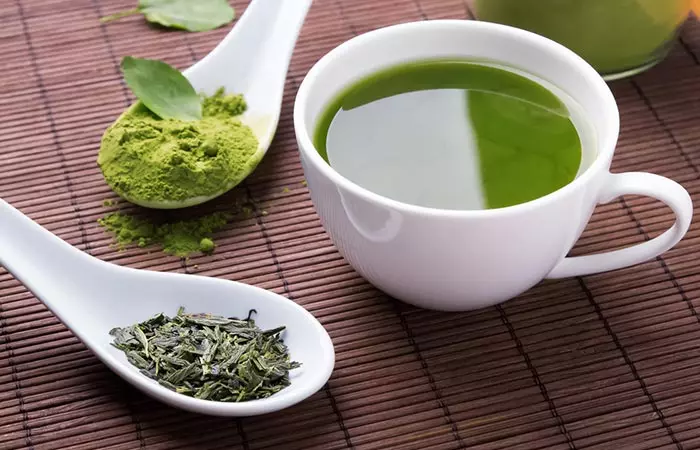
In a study, epigallocatechin gallate or EGCG (a component of green tea) was found to protect the hair follicles from DHT-induced hair loss (4).
In another study, researchers applied an alcohol extract of EGCG to the scalp of the test subjects for 4 days. EGCG was found to effectively block the negative impact of DHT. It also protected those cells that regulated the hair strand growth cycle (5).
2. Onions
Onions are rich in antioxidants, like quercetini An antioxidant and plant pigment from the flavonoid group found in vegetables, fruits, seeds, leaves, and grains. (6). It can help combat free radical damage. The antioxidant may also help inhibit 5 alpha-reductase (7). However, more information on the DHT-blocking effects of onions is warranted.
3. Pumpkin Seeds
Consuming a pumpkin seed oil supplement daily was found to lead to rapid hair growth. However, the supplement may not make a difference in the hair strand thickness. Pumpkin seeds contain phytosterolsi A plant-derived compound which is structurally similar to cholesterol, mostly found in seeds, nuts, and vegetable oils. that can successfully inhibit 5-alpha reductase (8).
4. Coconut Oil
Coconut oil is rich in fatty acids such as lauric, oleic, and myristic acidsi Saturated long-chain fatty acids used in hair care products to condition the hair and keep it hydrated. (9). These may help prevent DHT-induced hair loss by inhibiting 5 alpha-reductase (10). However, more research is warranted in this regard.
5. Turmeric
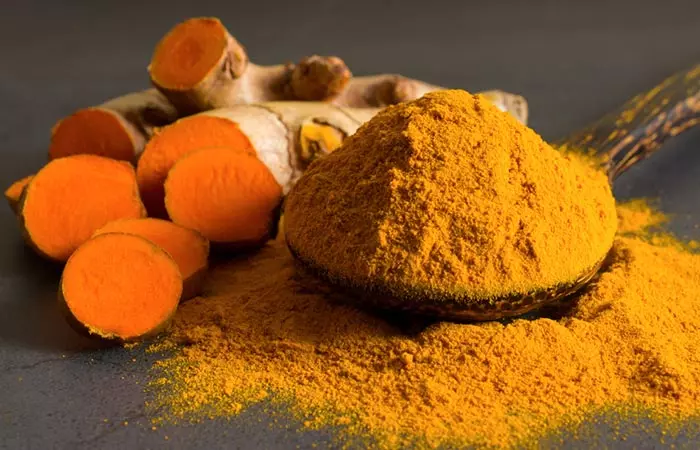
Concrete research is lacking here. The curcumin in turmeric was found to effectively reduce the production of testosterone in prostate cancer cells (11), (12). This has led to certain claims that turmeric may also help reduce DHT levels and the associated side effects, like hair loss.
6. Soy Milk
Soy milk is incredibly healthy and comes packed with isoflavonesi Plant-based compounds found mainly in beans and soy products that provide essential nourishment for age-related health issues. , a plant compound. Soy milk, regardless of its isoflavone concentration, had resulted in lower DHT levels (13). However, whether soy milk can also reduce DHT-induced hair is yet to be understood.
Foods rich in omega-3 fatty acids may also inhibit DHT production. However, more research is needed on the subject.
Now let’s discuss how to block DHT formation through ayurveda.
How Do You Reduce DHT Levels With Ayurveda?
Certain ayurvedic treatments may help reduce DHT levels and the associated side effects, including hair fall. However, research is limited in this regard. Consult your doctor before going for any of these treatments.
1. Oil Massages
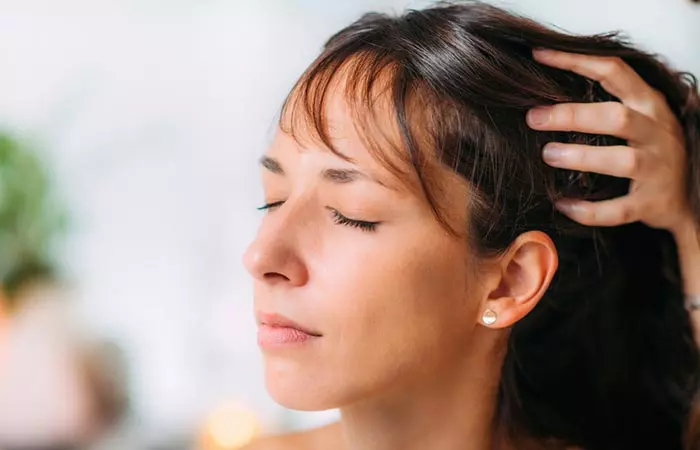
Frequently massaging your hair with oil may help reduce hair fall. Applying warm oil created from Indian gooseberry and aloe vera may help lower DHT levels. Massaging the head will also improve blood circulation to the hair follicles.
Doro, a beauty vlogger, shared her experience of using amla oil for her hair for 1 week and was amazed with the results. She said, “At the end, there was amazing hair growth. There is a massive improvement in the texture of my hair. My hair feels fuller, very strong (i).”
2. Nasya Kriya
Nasya kriya, or the inhalation of medicated oils such as black sesame oil, is a famous Ayurvedic solution to prevent DHT-induced hair loss. During this process, the oil is thought to quickly enter the bloodstream through the olfactory systemi The sensory system responsible for the sense of smell comprising the nose and nasal cavities in most mammals. and change the chemical composition of the scalp receptors by binding to them. This may block the DHT molecules from assessing the receptors, leading to reduced hair fall.
3. Washing Your Hair With Ayurvedic Shampoos
Several ayurvedic doctors recommend shampooing your hair with ayurvedic products made with natural ingredients that contain nutrients like biotin to reduce the hair fall caused by DHT.
These hair products also enhance blood circulation in your scalp and improve scalp health. They are said to widen the follicles present within the scalp, thereby promoting thicker, healthier hair growth.
While many support, follow, and have experienced positive results from these ayurvedic treatments, it is important to note that a lot more research needs to be done on this subject matter.
Besides the above-mentioned ayurvedic treatments, many people have also tried to reduce their DHT levels naturally with the help of exercise. Read the next segment to learn more.
 Quick Tip
Quick TipCan You Reduce DHT With Exercise?

While many gymnasts do promote cardio and yoga as a way to reduce the levels of DHT in your body, there is not enough research backing these claims. That said, it is hypothesized that weight lifting can actually increase the levels of testosterone in your body, resulting in higher DHT levels and more hair fall.
Although more research is needed, anecdotal evidence suggests that managing stress through practices like yoga, meditation, or deep breathing, getting enough sleep, eating a balanced diet, exercising regularly, staying hydrated, and avoiding excessive alcohol or processed foods may help lower DHT levels.
Infographic: 5 DHT-Blocker Foods You Need To Try
Dihydrotestosterone, or DTH, causes hair fall and affects hair growth as it shortens the hair growth cycle in women. While it can be caused by multiple factors, it is important to know that there are food options available that help reduce its level in your body. Check out the infographic below to learn the top 5 DHT-blocker foods you should add to your diet if you experience DHT-induced hair loss.
Some thing wrong with infographic shortcode. please verify shortcode syntaxThe DHT hormone is a type of androgen that may cause hair loss. While certain factors beyond your control can lead to this type of hair loss, you sure could counter it. Consuming a plant-based diet rich in DHT-blocking foods might help. You may also consult your doctor and try various ayurvedic treatments. If you still do not see results, you may have to consider alternatives.
Frequently Asked Questions
How long does it take for DHT-blocking foods to show results in hair health?
It may take a few months of consistently eating DHT-blocking foods before you notice any visible improvements in hair health.
Do eggs increase DHT?
Yes. Eggs contain cholesterol, which may increase DHT levels.
Do almonds reduce DHT?
Almonds contain lysine and are said to inhibit DHT activity.
Does sugar increase DHT?
A high sugar intake increases blood sugar levels, which may increase DHT.
Is zinc a DHT blocker?
Zinc may help regulate hormone levels, but there is not much scientific evidence to show that it inhibits DHT activity. Ingesting zinc can aid hair loss prevention caused by a zinc deficiency.
Illustration: Best DHT Blocker Foods For Hair Loss & Tips to Reduce It
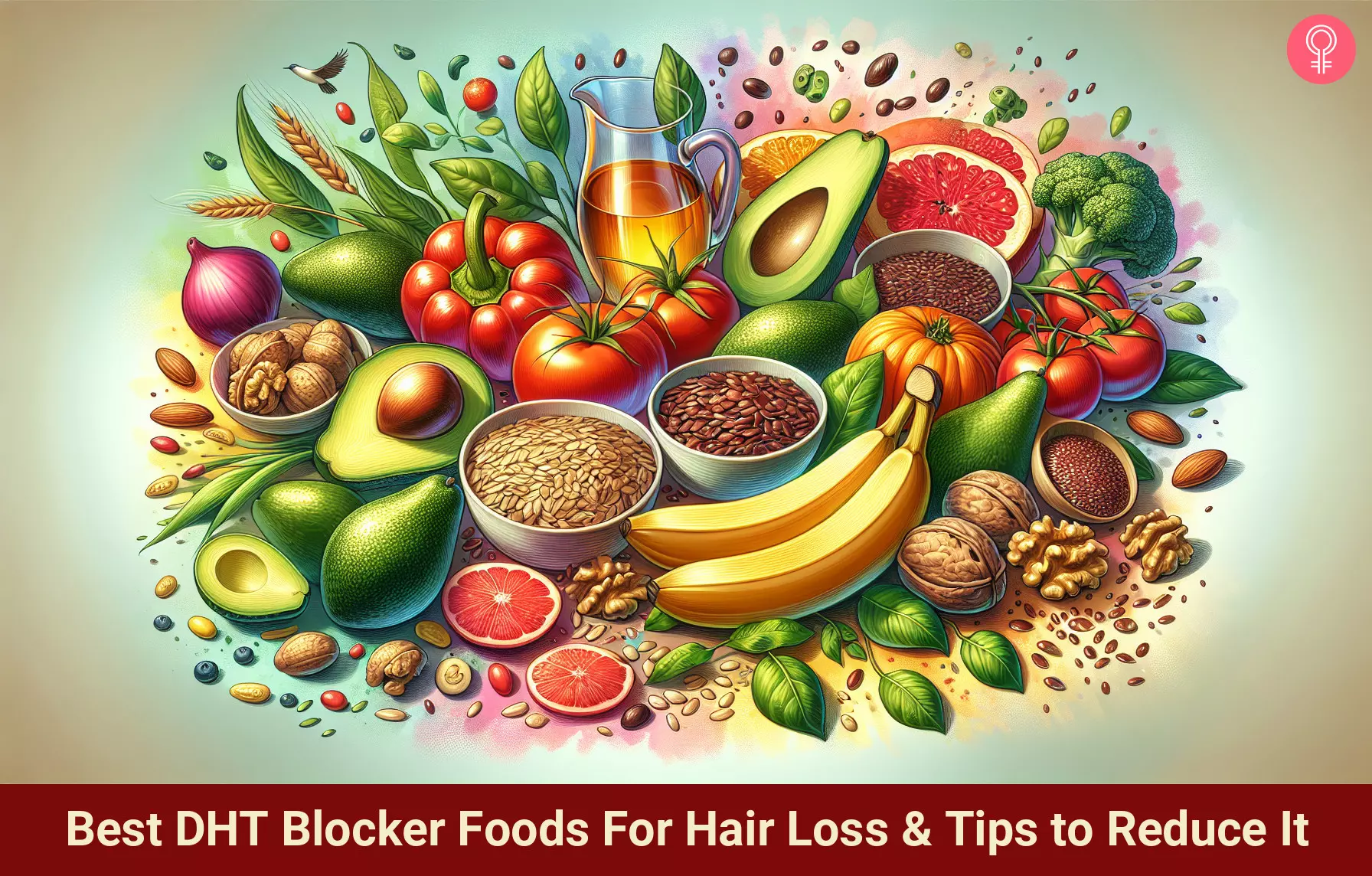
Image: Dall·E/StyleCraze Design Team
Learn about the 6 amazing foods that can block DHT to help fight hair loss! Click on the video given below to discover and add them to your daily diet to keep your hair healthy and strong.
Personal Experience: Source
StyleCraze's articles are interwoven with authentic personal narratives that provide depth and resonance to our content. Below are the sources of the personal accounts referenced in this article.
i. I tried AMLA on my hair for 7 days & THIS HAPPENED! *before & after results*https://www.youtube.com/watch?v=beYAdXiX9pw
References
Articles on StyleCraze are backed by verified information from peer-reviewed and academic research papers, reputed organizations, research institutions, and medical associations to ensure accuracy and relevance. Read our editorial policy to learn more.
- Big head? Bald head! Skull expansion: alternative model for the primary mechanism of AGA
https://pubmed.ncbi.nlm.nih.gov/18789604/ - Cause of Androgenic Alopecia: Crux of the Matter
https://www.ncbi.nlm.nih.gov/pmc/articles/PMC4174066/ - The Inflammatory Aspect of Male and Female Pattern Hair Loss
https://www.ncbi.nlm.nih.gov/pmc/articles/PMC7667670/ - Epigallocatechin Gallate-Mediated Alteration of the MicroRNA Expression Profile in 5α-Dihydrotestosterone-Treated Human Dermal Papilla Cells
https://www.ncbi.nlm.nih.gov/pmc/articles/PMC4884709/ - Human hair growth enhancement in vitro by green tea epigallocatechin-3-gallate (EGCG)
https://pubmed.ncbi.nlm.nih.gov/17092697/ - Absorption and antioxidant effects of quercetin from onions in man
https://pubmed.ncbi.nlm.nih.gov/10099940/ - Anti-androgenic effects of flavonols in prostate cancer
https://www.ncbi.nlm.nih.gov/pmc/articles/PMC4631581/ - Effect of Pumpkin Seed Oil on Hair Growth in Men with Androgenetic Alopecia: A Randomized Double-Blind Placebo-Controlled Trial
https://www.ncbi.nlm.nih.gov/pmc/articles/PMC4017725/ - Coconut oil and palm oil\’s role in nutrition health and national development: A review
https://www.ncbi.nlm.nih.gov/pmc/articles/PMC5044790/ - Inhibition of type 1 and type 2 5alpha-reductase activity by free fatty acids active ingredients of Permixon
https://pubmed.ncbi.nlm.nih.gov/12477490/ - Curcumin analogues with high activity for inhibiting human prostate cancer cell growth and androgen receptor activation
https://pubmed.ncbi.nlm.nih.gov/25060817/ - Modulation of AKR1C2 by curcumin decreases testosterone production in prostate cancer
https://www.ncbi.nlm.nih.gov/pmc/articles/PMC5891173/ - Isoflavone-rich soy protein isolate suppresses androgen receptor expression without altering estrogen receptor-beta expression or serum hormonal profiles in men at high risk of prostate cancer
https://pubmed.ncbi.nlm.nih.gov/17585029/
Read full bio of Dr. Rinky Kapoor
Read full bio of Arshiya Syeda
Read full bio of Ramona Sinha
Read full bio of Medha Deb






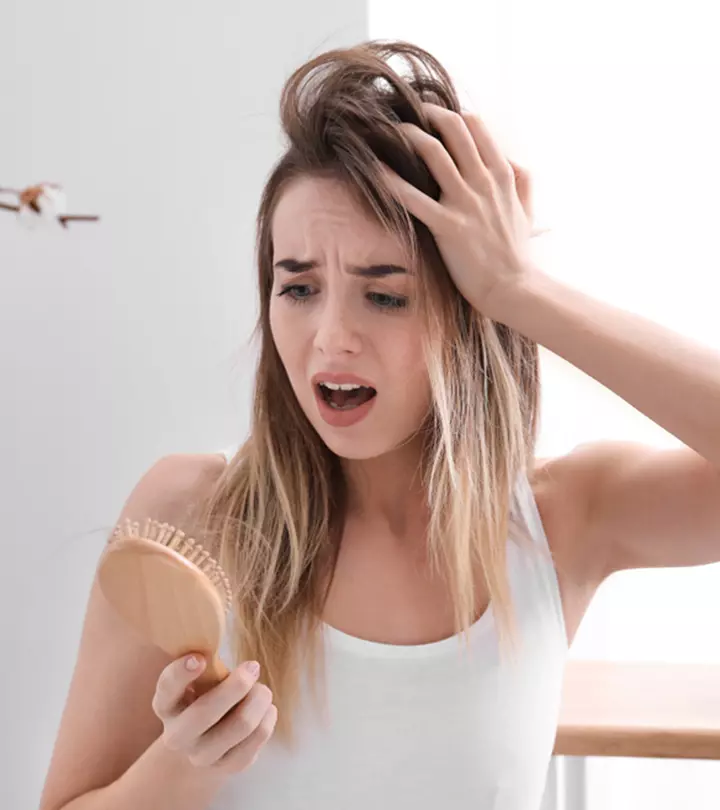
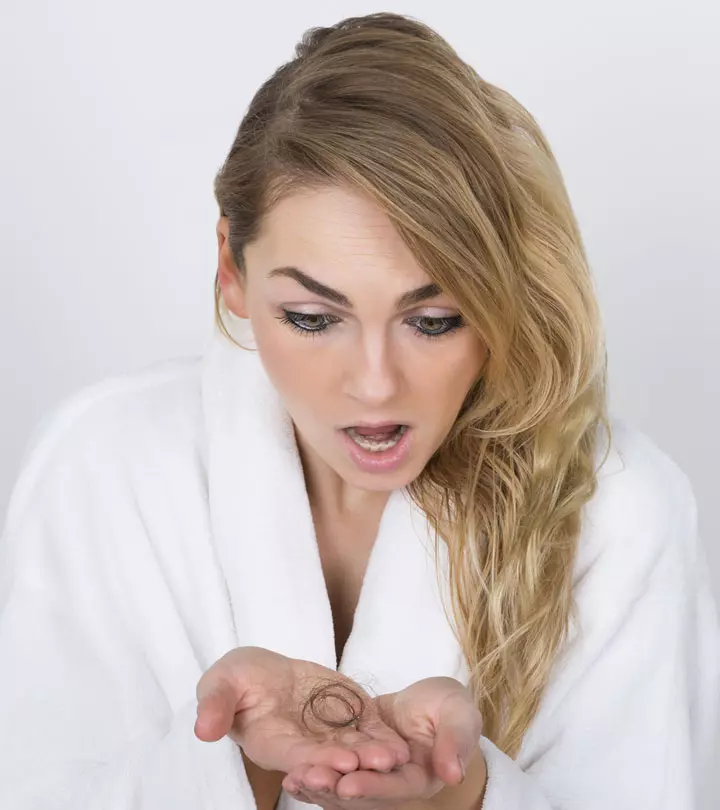
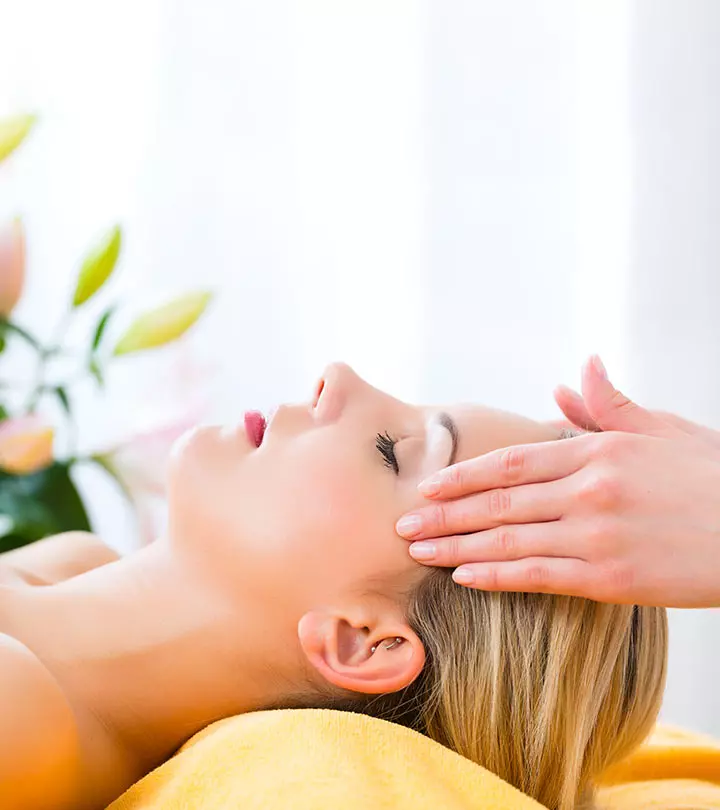
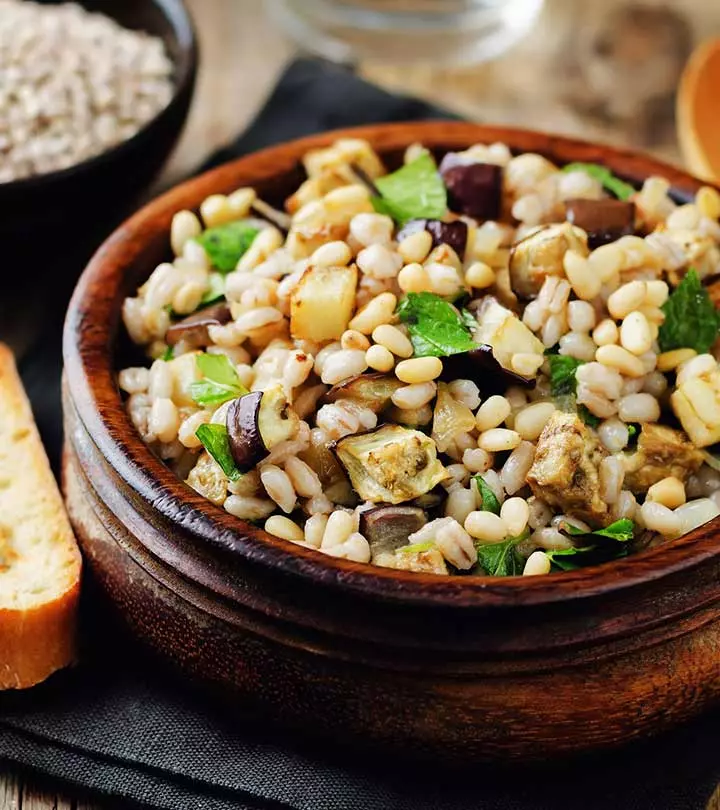
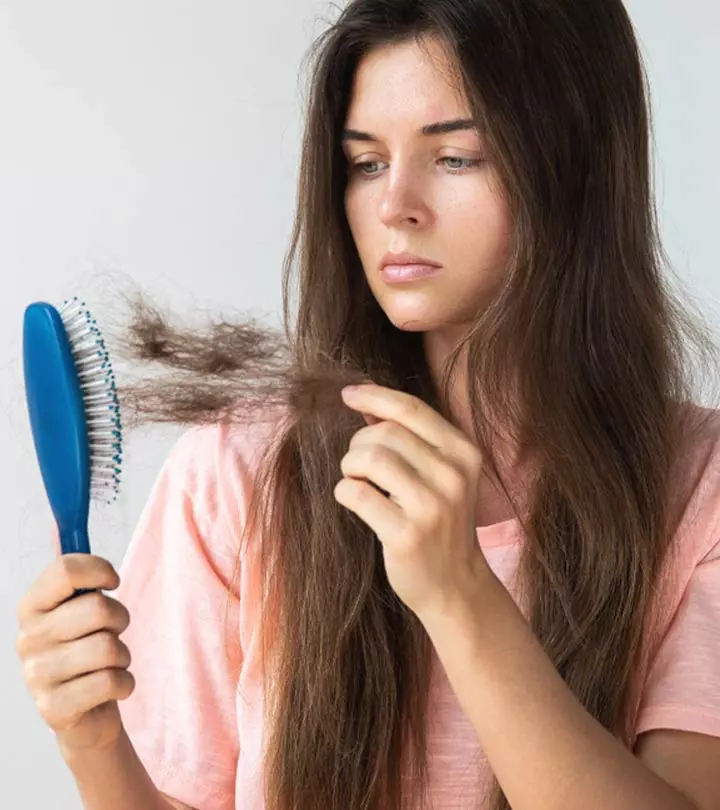
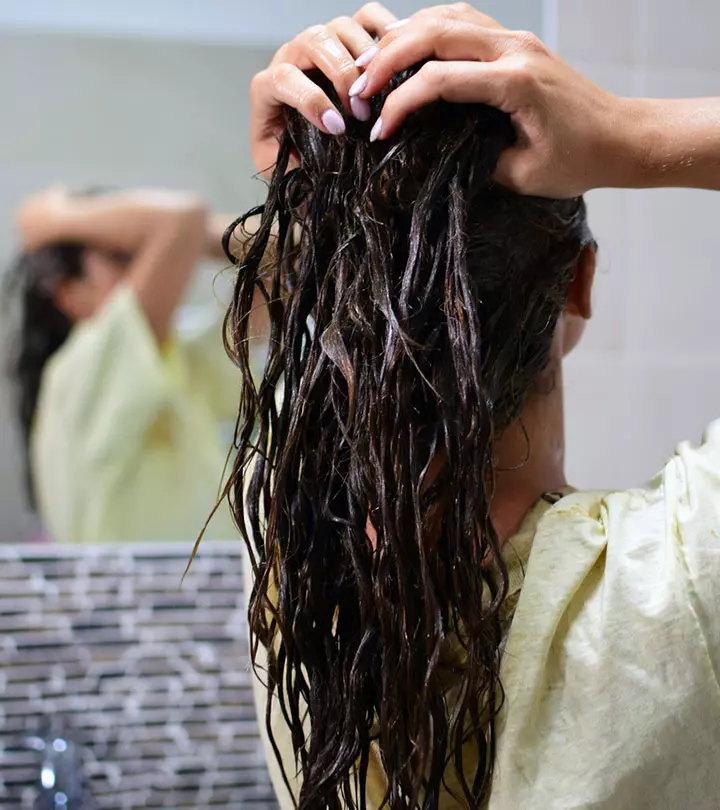
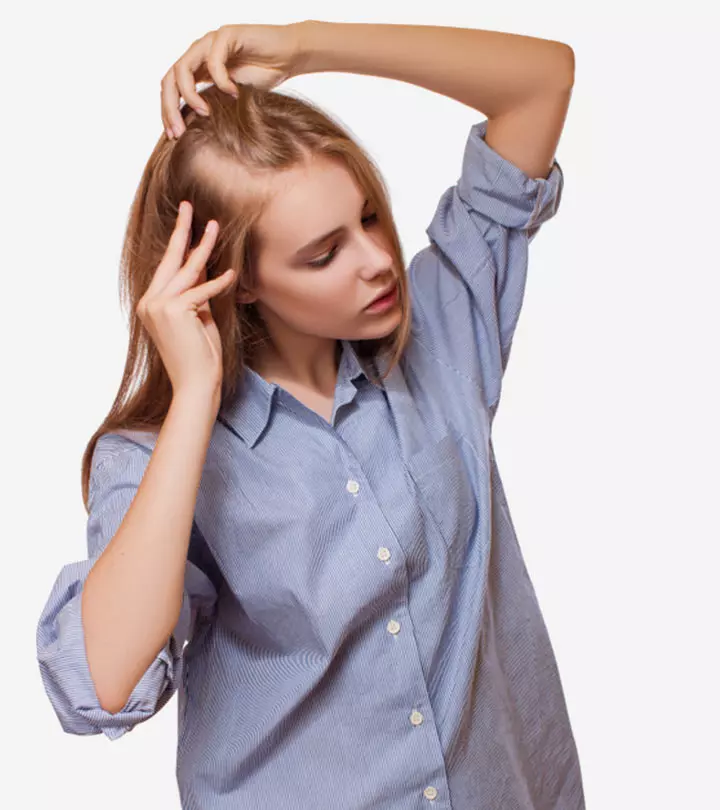


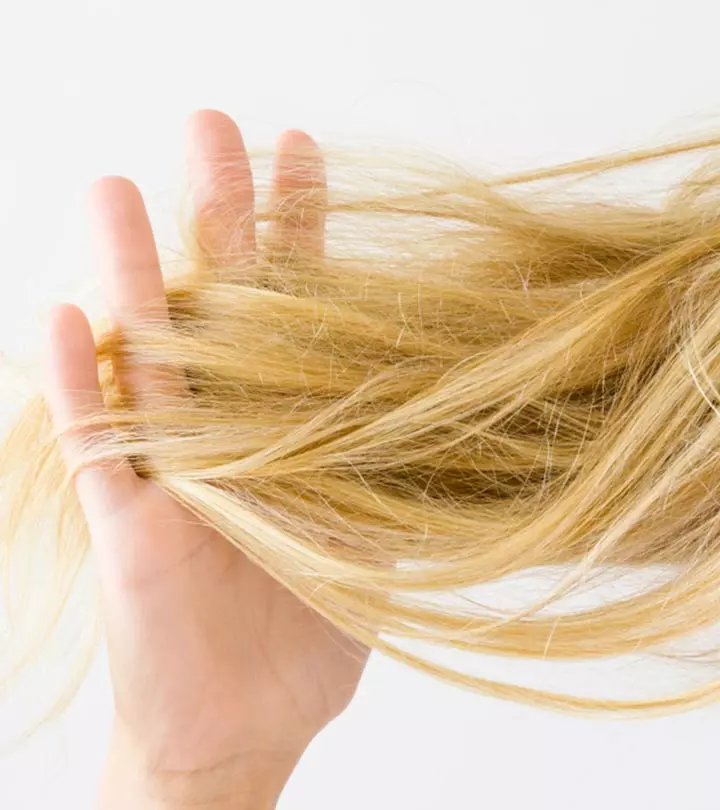
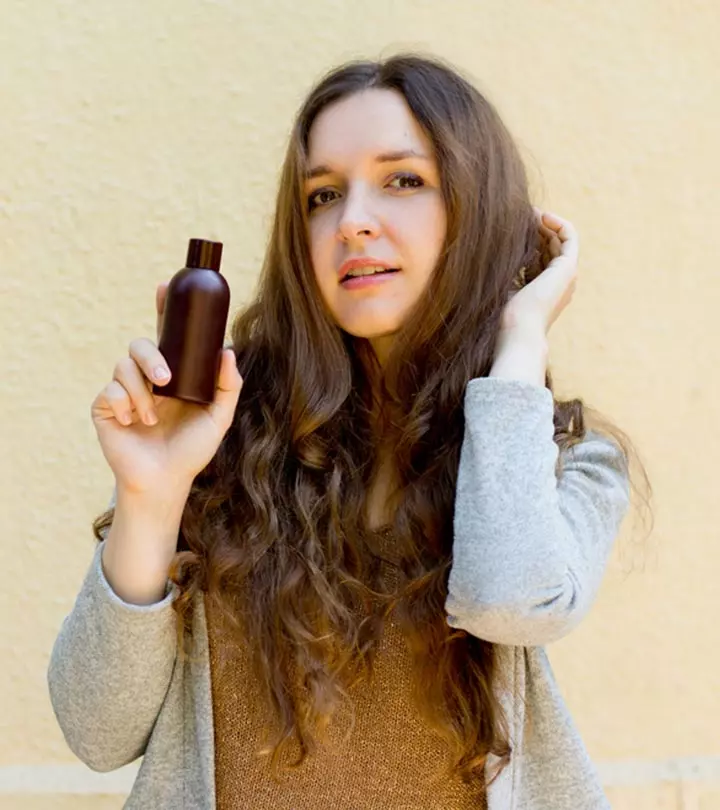
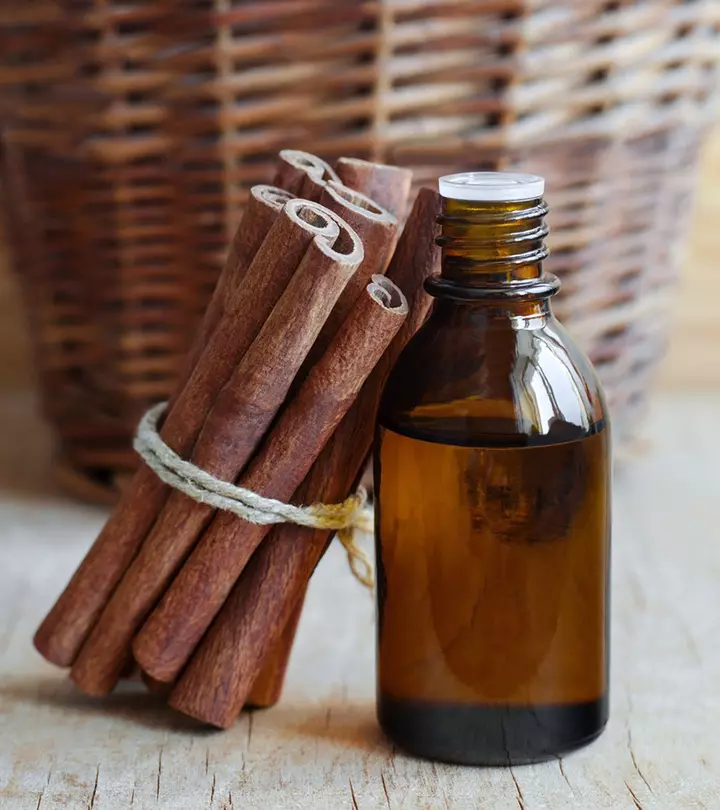
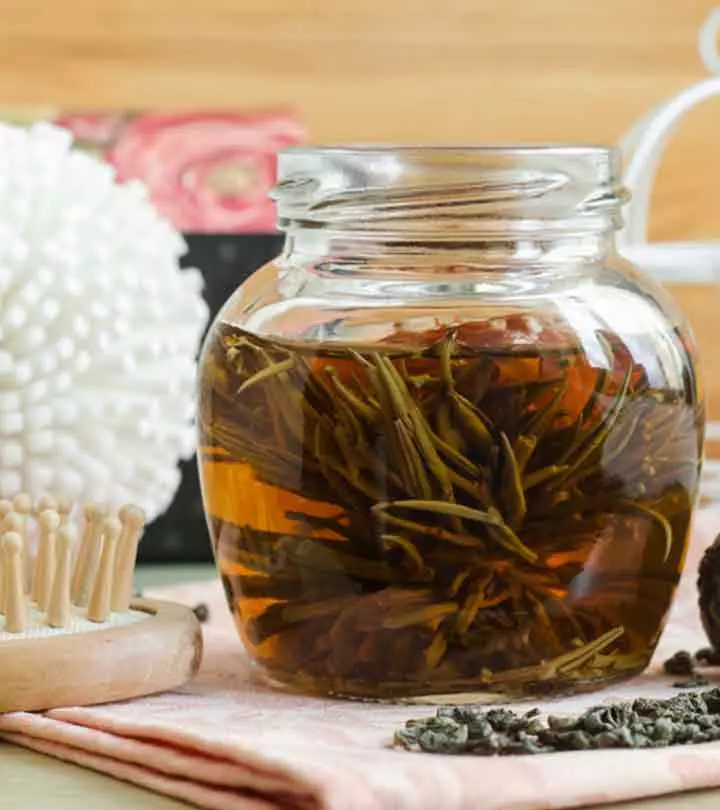
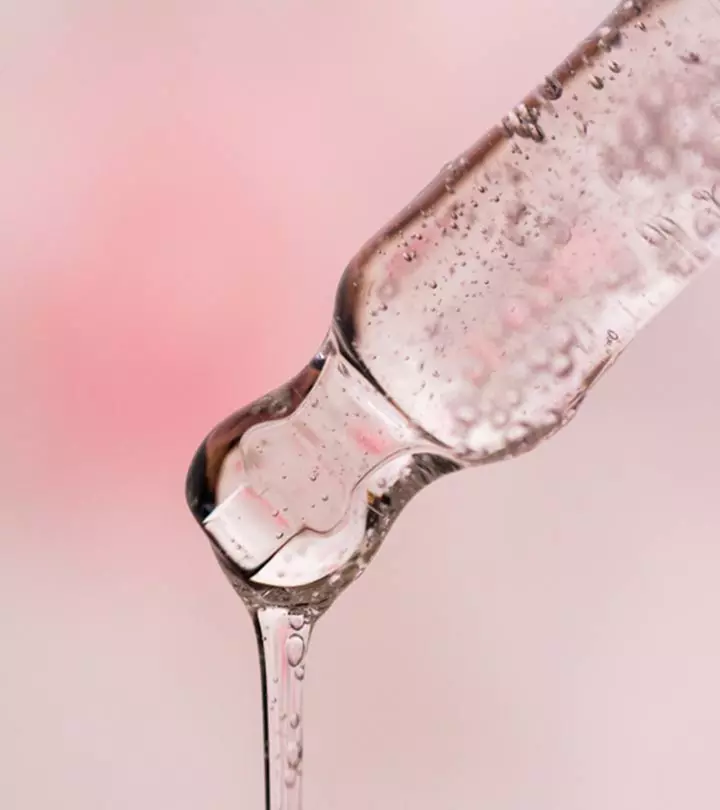
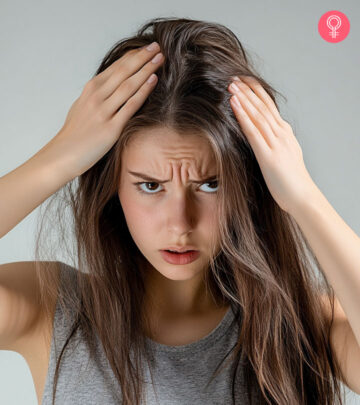


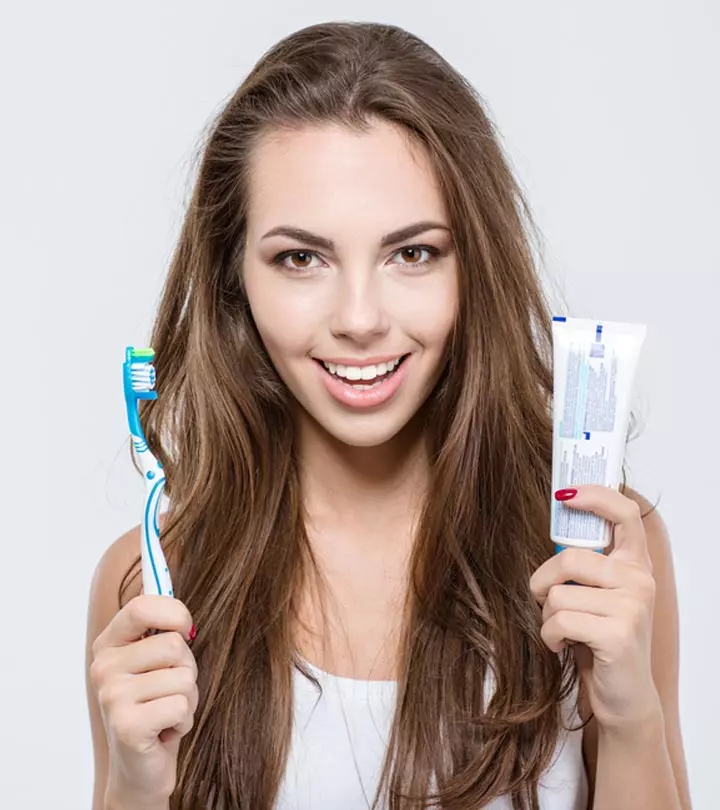

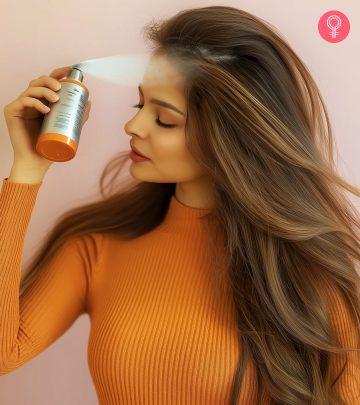
Community Experiences
Join the conversation and become a part of our empowering community! Share your stories, experiences, and insights to connect with other beauty, lifestyle, and health enthusiasts.